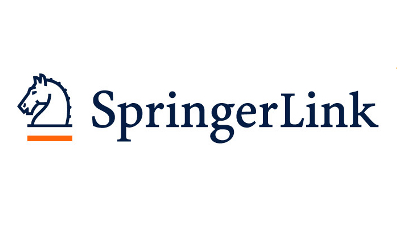 “Controlled and open label trials have demonstrated efficacy of cannabidiol for certain epileptic encephalopathies.
“Controlled and open label trials have demonstrated efficacy of cannabidiol for certain epileptic encephalopathies.
However, plant derived cannabidiol products have been used almost exclusively. Efficacy of synthetically derived cannabidiol has not been studied before.
The objective of this study was to evaluate tolerability and efficacy of synthetic cannabidiol in patients with pharmacoresistant epilepsy.
Efficacy and tolerance in our study of synthetic CBD treatment in pharmacoresistant epilepsy is similar to open label studies using plant derived CBD.
Regarding economic and ecological aspects, synthetic cannabidiol might be a reasonable alternative to plant derived cannabidiol.”
https://www.ncbi.nlm.nih.gov/pubmed/31920934
“Over the last decade, the therapeutic use of cannabidiol (CBD) in intractable epilepsies has increased considerably. Its anticonvulsant properties have been shown in several animal models for acute and chronic epilepsy.
Recent randomized, controlled trials have demonstrated that CBD is superior to placebo in seizure reduction in children with Dravet syndrome and patients with Lennox-Gastaut syndrome. In addition, open label studies indicate that cannabidiol has anticonvulsive properties in a broader range of epilepsy syndromes and etiologies.
In summary, the results of this study provide class III evidence of efficacy and safety of synthetic cannabidiol in children and adults with pharmacoresistant epilepsy. Additional studies investigating efficacy and tolerance of synthetic CBD in larger cohorts are needed.”
https://www.frontiersin.org/articles/10.3389/fneur.2019.01313/full

 “To evaluate the efficacy of open-label, highly purified
“To evaluate the efficacy of open-label, highly purified  “The behavioural effects elicited by chemical constituents of Cannabis sativa, such as
“The behavioural effects elicited by chemical constituents of Cannabis sativa, such as  “Stress is a risk factor for psychosis and treatments which mitigate its harmful effects are needed.
“Stress is a risk factor for psychosis and treatments which mitigate its harmful effects are needed. “Alzheimer’s disease (AD), the leading cause of dementia in the elderly, is a neurodegenerative disorder marked by progressive impairment of cognitive ability. Patients with AD display neuropathological lesions including senile plaques, neurofibrillary tangles, and neuronal loss.
“Alzheimer’s disease (AD), the leading cause of dementia in the elderly, is a neurodegenerative disorder marked by progressive impairment of cognitive ability. Patients with AD display neuropathological lesions including senile plaques, neurofibrillary tangles, and neuronal loss.
 “Two natural mixtures, Allium sativum fermented extract (BGE) and cannabinol oil extract (CBD), were assessed for their ability to inhibit and remove Pseudomonas aeruginosa biofilms on soft contact lenses in comparison to a multipurpose Soft Contact Lens-care solution present on the Italian market.
“Two natural mixtures, Allium sativum fermented extract (BGE) and cannabinol oil extract (CBD), were assessed for their ability to inhibit and remove Pseudomonas aeruginosa biofilms on soft contact lenses in comparison to a multipurpose Soft Contact Lens-care solution present on the Italian market. “In traditional medicine, Cannabis sativa has been prescribed for a variety of diseases. Today, the plant is largely known for its recreational purpose, but it may find a way back to what it was originally known for: a herbal remedy. Most of the plant’s ingredients, such as Δ-tetrahydrocannabinol,
“In traditional medicine, Cannabis sativa has been prescribed for a variety of diseases. Today, the plant is largely known for its recreational purpose, but it may find a way back to what it was originally known for: a herbal remedy. Most of the plant’s ingredients, such as Δ-tetrahydrocannabinol,  “Cannabis was used for cancer patients as early as about 2500 years ago.
“Cannabis was used for cancer patients as early as about 2500 years ago. “This study evaluated the potential of combined cannabis constituents to reduce nausea.
“This study evaluated the potential of combined cannabis constituents to reduce nausea.